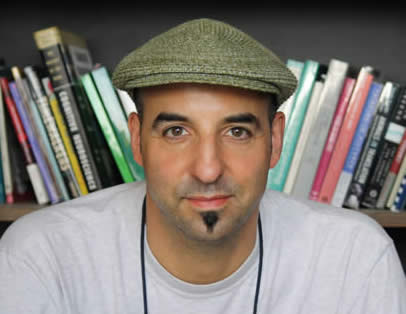|
TOWARD A SCIENCE OF CONSCIOUSNESS The Tucson Conference 2014 - 20th Anniversary APRIl 21-26, 2014 Tucson - University Park Marriott under the direction of the Center for CONSCIOUSNESS STUDIES, University of Arizona
Pre-Conference Workshop
Philosophical Theories of Consciousness Presenters: Rocco Gennaro, Josh Weisberg Date: Tuesday morning, April 22, 2014 Time: 9:00 - 1:00 Location: tba
Rocco J. Gennaro Josh Weisberg
Summary: This tutorial will begin with explanation of various senses of the term ‘conscious’ and present an overall picture of the problem of consciousness. We first introduce various traditional philosophical theories of consciousness under the umbrella of the metaphysical distinction between dualism and materialism (or, more broadly, physicalism). For example, we examine such dualist views as substance dualism, property dualism, and epiphenomenalism. We then discuss some nonreductive (but also nondualist) approaches, such as neutral monism and panpsychism. On the materialist side, we critically examine such theories as identity theory and eliminative materialism. This leads naturally into considering so-called “functionalist” theories of consciousness. We then explain why the notion of ‘representation’ is so central to many contemporary philosophical theories of consciousness and why it figures importantly in psychology and neuroscience. The key question then becomes: What makes a mental state a conscious mental state? We survey a number of leading representational theories of consciousness found in the current literature, such as First-Order Representational Theory of Consciousness (Tye), Higher-Order Perception (HOP) Theory (Lycan), Higher-Order Thought (HOT) Theory (Rosenthal, Gennaro), and Self-Representational Theory (Kriegel). After the main tenets of each approach are presented, we shall discuss the arguments for and against the theory in question. Significant attention will be paid to well-known objections to each theory, for example, the problem of misrepresentation, the question of animal consciousness, and how these theories might address the “hard problem” of consciousness. Outline (approx. 30 minutes each): The Problem; Introduction/Terminology; Different Senses of ‘Conscious’ Dualism (and Mysterianism) Nonreductive (but nondualist) approaches, such as neutral monism and panpsychism Materialism and Identity Theory Functionalism The Nature of Representation; First-Order Representational Theory of Consciousness Higher-Order Representationalism Self-Representational and other hybrid theories
Intended Audience: This tutorial will assume no background in any of the theories considered. Although each theory will be examined in some detail, the overall level will be introductory. The purpose of the tutorial is not to present a final verdict on any approach, but rather to get a clearer picture of the interconnections between the various theories as well as their relative strengths and weaknesses. Participants will periodically be asked to critique each view for the sake of further discussion. Participants will also be asked to evaluate the notion of ‘representation’ as compared to their own fields.
Bios/Links to CVs: Rocco J. Gennaro is the Philosophy Department Chairperson and a Professor of Philosophy at the University of Southern Indiana. He received his Ph.D. in 1991 at Syracuse University and had been at Indiana State University in Terre Haute for fourteen years before moving to Southern Indiana in 2009. Dr. Gennaro's primary research and teaching interests are in Philosophy of Mind/Cognitive Science, Early Modern History of Philosophy, Metaphysics, and Applied Ethics. He has published seven books (as either sole author or editor) and over twenty articles and book chapters in these areas. Dr. Gennaro has recently completed work on a single author book entitled The Consciousness Paradox: Consciousness, Concepts, and Higher-Order Thoughts (MIT Press). Dr. Gennaro is also the Philosophy of Mind/Cognitive Science area editor for the Internet Encyclopedia of Philosophy. Short CV for selected linked papers and publications — or long CV-Gennaro.
Josh Weisberg is Associate Professor of Philosophy, University of Houston. He received his Ph.D in 2007 at CUNY, where he wrote on consciousness with David Rosenthal. Josh Weisberg's research focuses on philosophical theories of consciousness, in particular the HOT theory. He has published in a range of journals, including Analysis, Philosophical Studies, Philosophical Psychology and the Journal of Consciousness Studies. Forthcoming, 2014: Consciousness, Polity Press, 2014. (An introduction to the philosophical problem of consciousness and a review of the major philosophical theories.)
|
|
|||||||||||||

